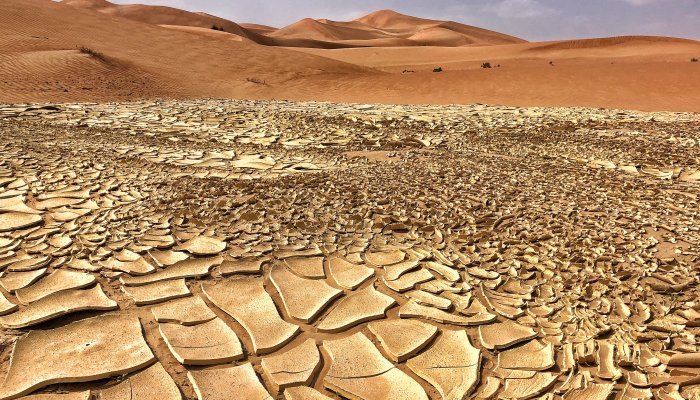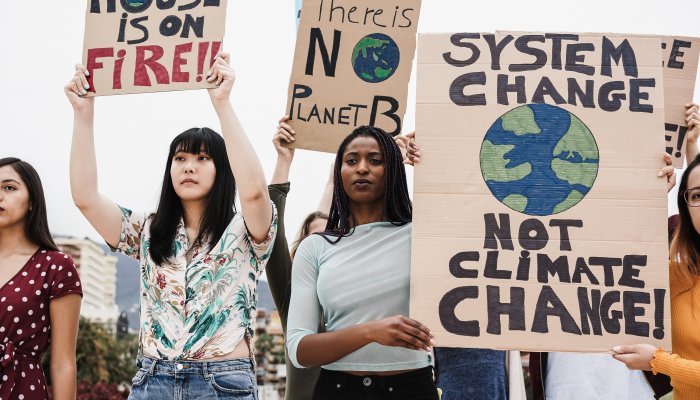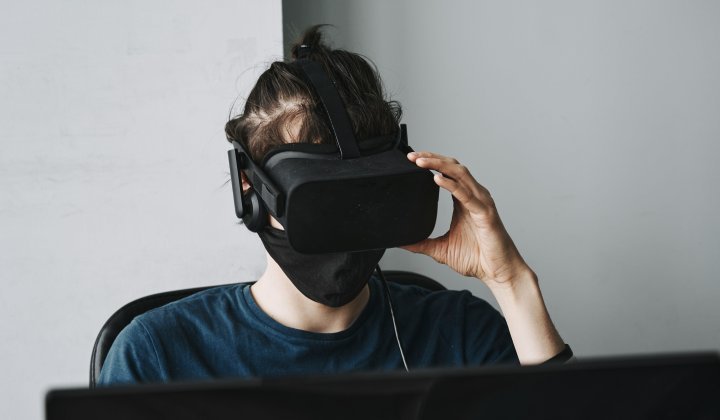Disease, War, Famine and Death: these are the four horsemen of the apocalypse. And given what the world has been through in the last few years, they seem to be roaming the planet and signalling that our time is up.
“I don’t think history is deterministic, which is why we can’t predict the future,” says Yuval Noah Harari. “And we can’t be certain that the apocalypse is coming or [that] the end of days is coming. This is something humans have always felt – that some huge, terrible calamity is just around the corner. Sometimes it happens when you’re born. But often it doesn’t.”
Humanity has the power to Solve its problems
Instead of trying to prophesy the future (something we’ve never been able to do anyway), Harari finds it more valuable to remember that the future depends on the decisions we make in the present. This requires understanding that humanity has enormous power and responsibility to shape the world.
“All the problems are big [and] worrying,” he says. “I worry a lot about them. But none of them is an inevitability. None of them is unsolvable. Humanity has not just the scientific knowledge [but also] the economic resources to solve all [its] problems, including climate change.”
It’s not too late to reverse climate change
Even though the world has been hitting the snooze button on the climate crisis for just a few more minutes of unrefreshing sleep, we have now woken up to the painful reality that we are heading toward disaster. But it doesn’t have to be this way.
“I’m worried about people losing hope – about people feeling that it’s now too late to stop the ecological catastrophe,” Harari says. “It’s not true. We don’t have a lot of time. But if we make the right decisions, we have the economic resources and the scientific knowledge to prevent it.”
We must invest in the right technology and infrastructure
What will it take to prevent catastrophic climate change? Just 2% of global GDP invested in the right technology and infrastructure. Even though Harari admits that this is still a lot of money, it’s a small price to pay in the grand scheme. More than that, we as a species are good at shifting resources when required. This means that the climate crisis isn’t an inevitable destiny nor is it about a lack of resources. Instead, it’s due to “bad political decisions”.
“When I look at the world today [and] in the last few years, we are running in the wrong direction,” he says. “So I can’t say that I’m optimistic; maybe it will all go to waste. Maybe the civilisation that we’ve built will collapse. But it’s not inevitable. It’s because of our decisions. And it’s not too late to make different decisions.”
Degrowth is not an option for much of the world
One thing that’s prevented us from taking action is the hyperfocus on growth. Harari considers it the most important idea of modernity, with many regimes, ideologies, and religions seeing and accepting it as “the ability to solve everything”.
“It doesn’t matter if you call yourself socialist or capitalist, Jewish or Muslim, a dictatorship or a democracy – everybody believes in growth,” he says. “It’s the number one goal. Now there’s a lot of criticism of growth – that it’s unsustainable – but for much of the world growth is essential.”
Sustainable growth is key
Indeed, while Western nations and affluent societies can talk about degrowth, for the billions who live without electricity or running water, growth is their way to health and wellbeing. But getting everyone to a basic level of comfort would have a terrible ecological impact unless we grow sustainably.
“When you look at the rich people [too], I wouldn’t frame it as degrowth because people don’t want a reset,” Harari says. “People don’t like to lose. People don’t want to go back. People don’t want to have less. The question is: what do people really want?”
Society should meet its needs in better ways
We need to have growth when it comes to our deep psychological, social and spiritual needs. But we can do that without destroying the planet. For example, instead of flying halfway around the world to connect with friends or (ironically) to enjoy nature, we can find other ways to do so that don’t have such a big carbon footprint. In other words, it’s not about negating the needs; it’s about meeting them in a better way.
“The shift from physical records and CDs to having everything digital – ecologically it was good,” Harari says by way of example. “It’s less physical stuff being produced and moved around. But we didn’t tell people to give up music [because] it was causing too much pollution. We found an even better way to share and enjoy music which doesn’t harm the ecological system so much.”
Catastrophes are increasingly our own doing
As we become more powerful, we also have more control over the world. This means that the bad decisions we make also have consequences that are far more horrendous than they would otherwise have been. Indeed, Harari observes that much of what the world is going through is our own fault.
“For much of history, the unforeseen catastrophes that befell humans were not their own fault, or at least not directly their own fault,” he says. “If you think about something like the Black Death, this was an uncontrollable force of nature. The fact that humans opened trade routes made it easier for pathogens and diseases to travel. So this partly explains the Black Death. But, ultimately, it was a force beyond human control.”
The pandemic is a political failure
When this plague killed between 75 million and 200 million people, nobody understood what was happening or how to stop it. They thought it might be divine punishment, black magic, or something else. But because they didn’t know the truth, they were helpless. In the face of the Covid pandemic, the situation is different.
“It took two weeks to identify the virus [and] a year to develop effective vaccines,” Harari says. “We are not helpless in the face of pandemics anymore. So a pandemic is now a political failure. It’s not a natural disaster.”
We are entering a new era of war
The same is true of famine. For much of history, it was a natural disaster caused by drought or flood that nobody could control. Now, according to Harari, the only famine that exists is “political famine” because “some politician wants there to be famine or doesn’t do enough to prevent it”.
The same is also true of war. For much of history, it was thought that brutality was simply part of human nature. But we’ve shown in recent generations that we are capable of building international institutions and norms that drastically reduce violence.
“We have been living in the most peaceful era in history, not because of some miracle of God but because of institutions that humans built,” he says. “And now we are entering a new era of war, not because the devil did something but because humans neglected the institutions they built. It’s like if you build a dam and then you neglect it, it falls down [and] you have a flood.”
We can rebuild the institutions that protect us
Harari believes that the decline of the institutions that kept world peace began with Brexit and the election of Donald Trump. This was when the leading countries in building rule-based frameworks signalled to the world that they no longer cared about this.
“It’s no wonder that the institutions are falling apart and that we are coming back to the era of war,” he says. “But this is all human action. And, therefore, it’s not too late to reverse course – to rebuild the dams and to rebuild the institutions that protect us from pandemics, famine, and war.”
Organised people can have a big impact
Harari believes that real change is always about institutions. Indeed, the fact that 50 organised people can have a much bigger impact than 500 individual activists is something oppressive regimes know, which is why the number-one job of every autocratic state is to break down any alternative institution or organisation, no matter what.
“In the extreme cases of totalitarian regimes, every time people in significant numbers meet it must be under supervision,” he says. “So you can’t have a football club, an environmental organisation, or a charity unless it’s sanctioned and directed by the party or the regime. Because whenever people get together for any reason and build trust and learn how to cooperate, this is a threat.”
Instead of fearing this reality, democratic societies embrace it. This, Harari says, is the basis for everything, from successful revolutions to lasting social change. “So [for] anybody who wants to change the world, the question they face is, ultimately, how [to] build institutions that incorporate our ideals,” he says. “An ideal that has no institution to implement it will not succeed.”
Books from Blinkist
If you haven’t read Harari’s books, here are summaries from Blinkist (which is offering Acumen readers a free one-week trial):
- Sapiens. Beginning with the development of language and common myths that tie our social fabrics together, human civilisation has been getting more and more sophisticated – leading to the interconnected global village we have today.
- Homo Deus. Our world is changing and will continue to change. If we better understand our history and how it made us who we are today, we can have a more secure idea of where we will be in the future.
- 21 Lessons for the 21st Century. Although the 21st century has brought fears of terrorism and mass unemployment, we should remember that, ultimately, the key to our prosperity and security remains in our own hands.
Prof. Yuval Noah Harari is a historian, philosopher and the bestselling author of Sapiens: A Brief History of Humankind, Homo Deus: A Brief History of Tomorrow, 21 Lessons for the 21st Century, and Sapiens: A Graphic History. His books have sold 40 million copies in 65 languages, and he is considered one of the world’s most influential public intellectuals today.
Born in Israel in 1976, Harari received his PhD from the University of Oxford in 2002, and is currently a lecturer at the Department of History in the Hebrew University of Jerusalem. In 2019, following the international success of his books, Yuval Noah Harari co-founded Sapienship with his husband and original agent, Itzik Yahav. Sapienship is a social impact company with projects in the fields of entertainment and education, whose main goal is to focus the public conversation on the most important global challenges facing the world today.






